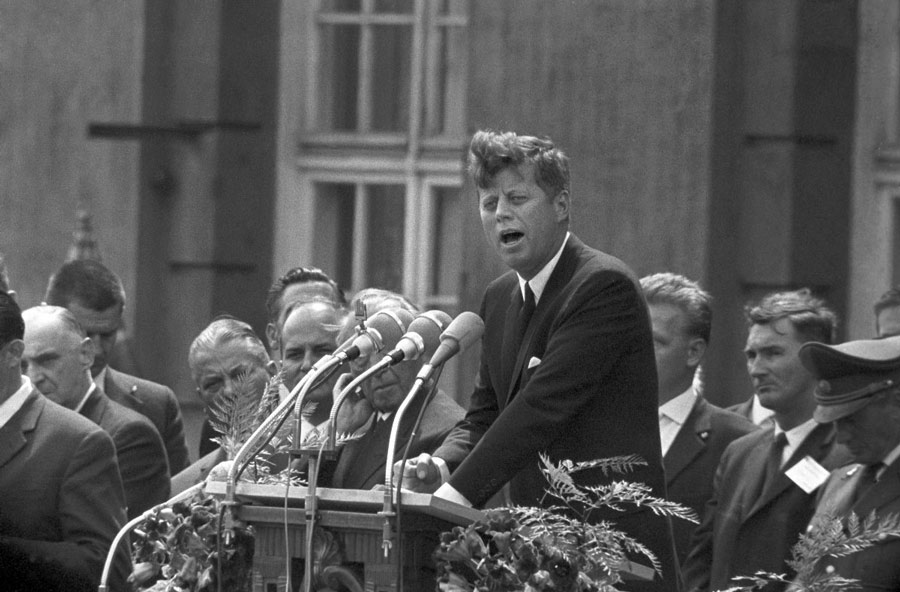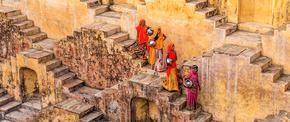The views expressed in our content reflect individual perspectives and do not represent the authoritative views of the Baha'i Faith.
Only in times of darkness, the old saying goes, can one truly see the light.
Mahatma Gandhi—by profession a lawyer, but one who pursued justice to its ultimate end to realize freedom and independence for the Indian subcontinent—took steps no greater than an ordinary man, but achieved things no ordinary man had achieved.
Today we clearly live in a transitional period of human history—seemingly made dark by surges of conflict, technological disruption, and social and environmental upheavals—and further marked by the lack of strong examples of moral and ethical leadership needed to address the persistent, stubborn challenges of poverty, of human inequality and injustice. Yet this period of darkness also presents an unprecedented opportunity to see challenges through a new lens, and take a step into an experience of how our collective power can create a truly peaceful world.
As an American of Indian origin who now lives in Germany, I reference a similar dark time during the Cold War, marked by acute geopolitical tension and a threatening divide between the Eastern and Western Blocs. During that time President John F. Kennedy visited Germany and gave one of his most famous speeches, in which he stated “Ich bin ein Berliner.” His phase “I am a Berliner” was met by applause and acclaim. Why?
Because while Kennedy was clearly not from Berlin, his words were immediately understood to connote a solidarity, and a shared identity, with the struggles of West Berlin as an outpost of human freedom. Furthermore, by putting himself in their shoes he could authentically declare:
Freedom is indivisible, and when one man is enslaved, all are not free. When all are free, then we can look forward to that day when this city will be joined as one and this country and this great continent of Europe in a peaceful and hopeful globe.
In 1991 that prediction came true, and since the fall of the Berlin Wall, Europe as a whole has achieved a more unified state. Yet as governments deliberate whether tighter boundaries are needed, and which borders need to be controlled, the forces bringing us together as one human family also continue to unfold. In the Baha’i teachings, Baha’u’llah reveals that the call summoning humanity to global peace and prosperity summon us to an even wider identity than Kennedy called for 50 years ago. The time is right, Baha’is believe, to truly envision “The earth is but one country, and mankind its citizens.” – Tablets of Baha’u’llah, p. 167.
Baha’u’llah didn’t just voice a fond hope—instead, he elaborated by outlining a detailed plan for world unity:
The time must come when the imperative necessity for the holding of a vast, an all-embracing assemblage of men will be universally realized. The rulers and kings of the earth must needs attend it, and, participating in its deliberations, must consider such ways and means as will lay the foundations of the world’s Great Peace amongst men. Such a peace demandeth that the Great Powers should resolve, for the sake of the tranquility of the peoples of the earth, to be fully reconciled among themselves … It is not for him to pride himself who loveth his own country, but rather for him who loveth the whole world. – Gleanings from the Writings of Baha’u’llah, p. 250.
Personally, having been born in New York City, with ethnic origins from the East and educated in the West; having been raised in two faiths (Hindu and Sikh) and then stepping into a third—the Baha’i Faith—and marrying into a fourth (Catholicism), embracing the world wasn’t as much of a choice as it was the only way I could live my reality. Yet as I came to understand later, it was the compass of the common spiritual origins of my Faith that always provided direction in every trying circumstance. Believing we all come from the same place spiritually, and all return to the same heavenly home, guided me time and again to our common spiritual virtues, and to service as the ultimate handbook on how to proceed in moments of marginalization or powerlessness.
Yet it is our choice to evolve into the possibility of our essential human nobility and oneness for the benefit of the whole. We can remain in darkness, or make the choice to step into light:
O Son of Spirit! Noble have I created thee, yet thou hast abased Thyself. Rise then unto that for which thou was created. – Baha’u’llah, The Hidden Words, p. 9.
Considering ourselves within the context of the oneness of the human family, we may then cultivate our highest state—and realize our unique potential.


















Comments
Sign in or create an account
Continue with Facebookor